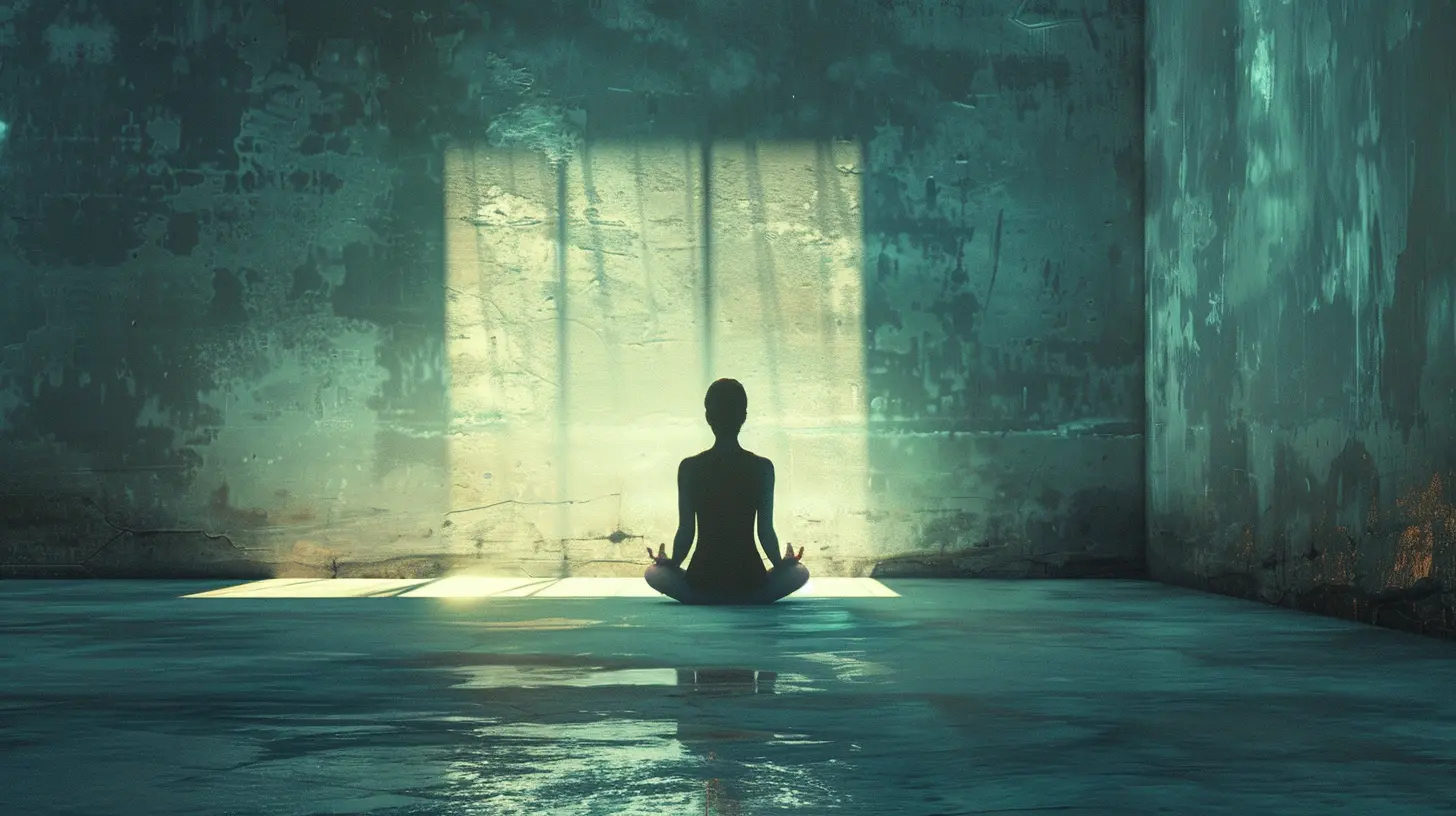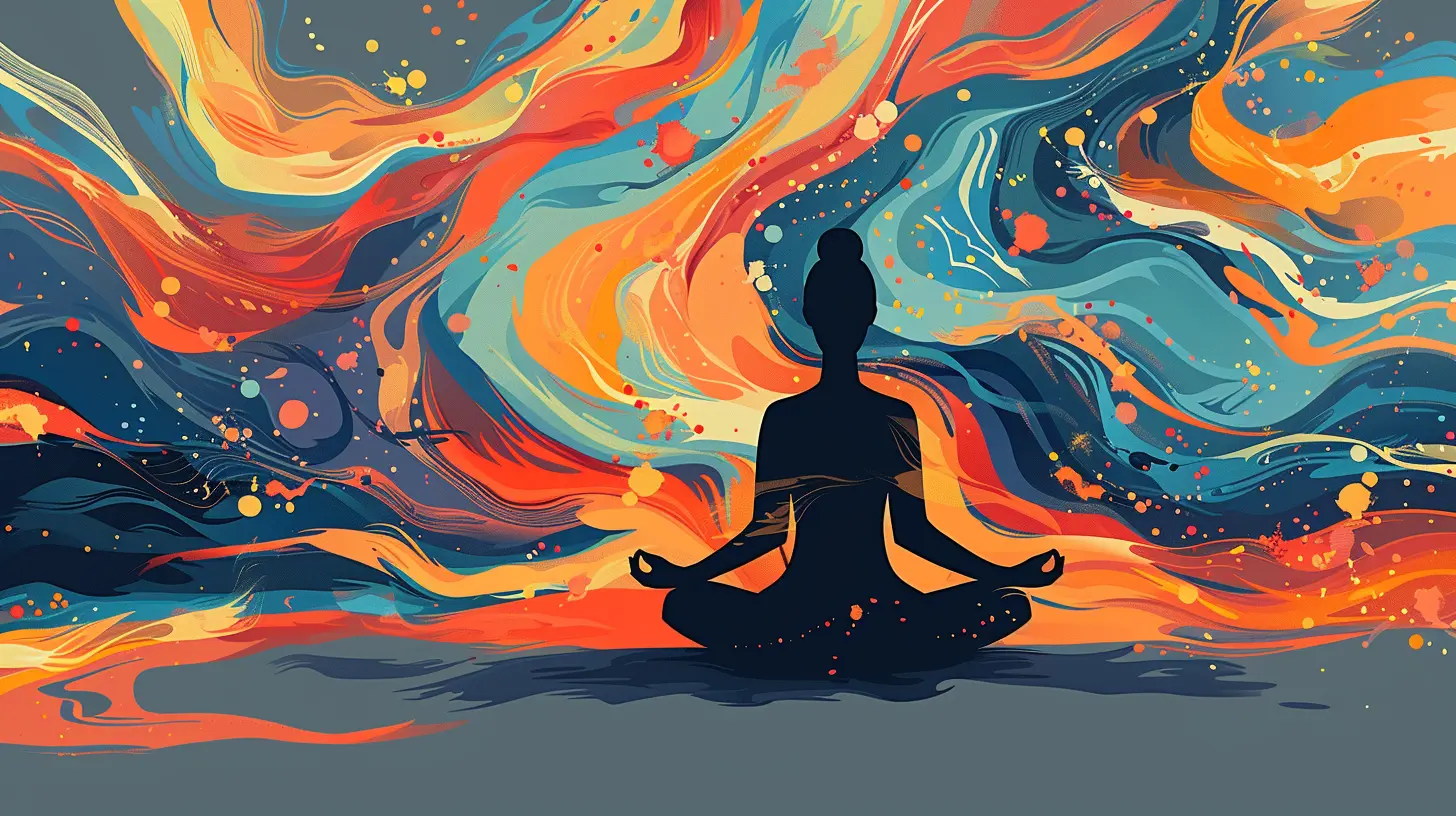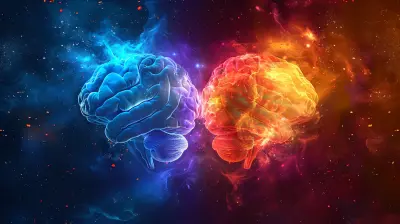Can Meditation Really Help with Depression?
24 November 2025
Okay, let’s just admit it—when someone suggests meditation after you just confessed you’re battling depression, it can feel a little like someone offering you a Band-Aid for a broken leg. “Oh, you’ve been crying in bed for six hours straight and can’t feel joy anymore? Just breathe deeply and think happy thoughts!” Sure, Karen. That should totally solve chemical imbalances and years of trauma.
But before we roll our eyes right out of our heads, maybe—just maybe—it’s worth asking: Can meditation really help with depression? Like, actually help?
Let’s dig into the science, the skepticism, the possible magic, and the madness.
What Is Meditation Anyway?
If your mind instantly pictures a serene monk sitting cross-legged on a mountaintop, congrats, you’ve been culturally programmed! Meditation doesn’t require incense, bamboo flutes, or getting rid of all worldly possessions (phew, you can keep your Netflix subscription).At its core, meditation is just focused attention. That’s it. It's the deliberate practice of bringing your attention to the present moment. Which, believe it or not, is stupidly hard when your brain has taken up side-hustling as an overthinking machine.
There are different types: mindfulness meditation, loving-kindness meditation, transcendental meditation, and even the classic “just sit and try not to scream” meditation. (Okay, I made that last one up, but if you’ve had depression, you know it should be real.)
Depression Isn’t Just “Feeling Sad”
Let’s clear something up while we’re at it. People often throw the D-word around like it’s interchangeable with "I had a bad day." Spoiler alert: it’s not. Depression is a soul-sucking, energy-draining, can’t-get-out-of-bed mental state that affects your thoughts, behavior, and even physical health.Think of depression like a mental fog — it’s not just the weather one day, it’s like a soul forecast predicting doom and gloom for weeks (or months) on end.
Now, you might be wondering…
> “Can sitting quietly with my thoughts possibly help when my thoughts are the problem?”
That’s exactly what makes this discussion so interesting.
The Surprisingly Sexy Science Behind Meditation and Depression
Let’s dust off some research, shall we?Several scientific studies suggest that meditation can reduce symptoms of depression, especially when practiced regularly. The star of the show? Mindfulness-Based Cognitive Therapy (MBCT). It’s a therapy mashup that combines traditional cognitive therapy with—you guessed it—mindfulness meditation.
Studies have shown MBCT can be as effective as antidepressants in preventing relapse in people who have had multiple bouts of depression. Yes, you read that right. Just sitting and being aware of your breath has been legitimately shown to help your brain behave better.
Other studies point to mindfulness meditation decreasing activity in the default mode network (DMN)—the part of your brain that’s responsible for all that overthinking and self-referential chatter. You know, the annoying mental narrator that won’t shut up? Meditation calms that guy down.
Okay Cool, But How Does It Help?
Let’s break it down. Here’s what meditation actually does to help a depressed brain:1. Tames the Inner Critic
Meditation teaches you to observe your thoughts without judging them. So instead of spiraling into “I’m worthless” doom loops, you learn to see that thought and go, “Oh, hey there, self-loathing. Seen you before. Not buying what you’re selling today.”2. Builds Emotional Resilience
Regular meditation helps fortify the part of your brain that handles emotional regulation (specifically the prefrontal cortex, if we’re being nerdy about it). More control = less breakdowns during awkward work calls.3. Reduces Stress (Which Really Helps with Depression)
Stress and depression are like evil twins. Meditation lowers cortisol (that pesky stress hormone), which creates a friendlier internal environment for positive mental health.4. Improves Sleep
And guess what happens when you sleep better? EVERYTHING. Sleep is like the reset button for your brain, and meditation can help quiet those late-night thought spirals that keep you staring at the ceiling.“But I Tried Meditating Once, And It Made Me More Anxious!”
Oh yes, meditation isn’t all rainbows and inner peace. Sometimes, when you finally sit still and stop distracting yourself, all the emotional gunk comes bursting out like a clogged pipe. Not fun.In fact, for some people, especially those with PTSD or severe mental health issues, meditation can initially feel like it makes things worse. That’s why it’s important to ease into it, and ideally do it in conjunction with professional mental health support.
No, this is not a pitch to replace your therapist with a meditation app. (Although those apps are pretty cool. Headspace, anyone?)
How to Start Meditating Without Losing Your Mind
Ready to give it a shot? Here’s how to start without turning it into another chore on your guilt-list.1. Start Small
Seriously. Two minutes is fine. You don’t need to channel your inner Buddha on Day One. Just sit, breathe, and notice your thoughts without judging them.2. Use an App
There are tons of meditation apps out there that are basically like meditation training wheels. Try Calm, Insight Timer, or Headspace. They're like personal trainers but for your brain.3. Stay Consistent (Even When You Suck at It)
Consistency beats intensity. Meditation is more about showing up daily than having a “perfect” session. Your thoughts are going to wander. That’s the point. You come back. Again. And again. Like brain sit-ups.4. Combine It With Therapy
Meditation and therapy go together like peanut butter and jelly. Therapy helps you dig into the roots of your depression. Meditation helps you not freak out every time you water those roots.Meditation: The Magic Pill That Isn’t
Here’s the kicker: meditation is not magic. It’s a practice, not a potion. It won’t make your depression vanish overnight. But it might just soften the edges. It teaches your brain how to stop chasing every depressing thought like a cat with a laser pointer.And sometimes, the smallest shift—like a moment of peace in an otherwise stormy mind—is a pretty big deal.
So, Can Meditation Really Help with Depression?
Drumroll, please...Yes—but only if you use it wisely. Meditation can absolutely be a helpful tool in managing depression. But it’s not a cure-all. It’s not a replacement for therapy, medication, or professional help. It’s a sidekick. A toolbox item. Like Robin to your Batman. Or better yet, a really chill emotional support plant you carry around in your brain.
Meditation won’t make your problems disappear, but it might help change your relationship with those problems. And that shift, even if tiny, can be the beginning of something really freaking powerful.
Final Thoughts: Don’t Knock It Till You Try It (Properly)
Look, we live in a world where we expect five-second solutions and fast food fixes. Meditation is not that. It’s slow, sometimes awkward, annoyingly subtle, and absolutely worth it if you stick with it.So the next time someone says, “Have you tried meditating?” maybe don’t roll your eyes. (Okay, you can lightly roll them.) But consider that it might, just might, be a real tool in your mental health toolkit.
And who knows—you might even like it.
all images in this post were generated using AI tools
Category:
Mental IllnessAuthor:

Eliana Burton
Discussion
rate this article
1 comments
Zinna McKinnon
In stillness, thoughts unfurl like petals at dawn, Meditation whispers hope where shadows linger long. With each breath, a gentle light can pierce the gloom, Through mindful moments, the heart may find its bloom.
November 24, 2025 at 5:46 AM

Eliana Burton
Thank you for your poetic insight! Indeed, meditation can be a powerful tool for navigating depression, offering clarity and hope in challenging times.


